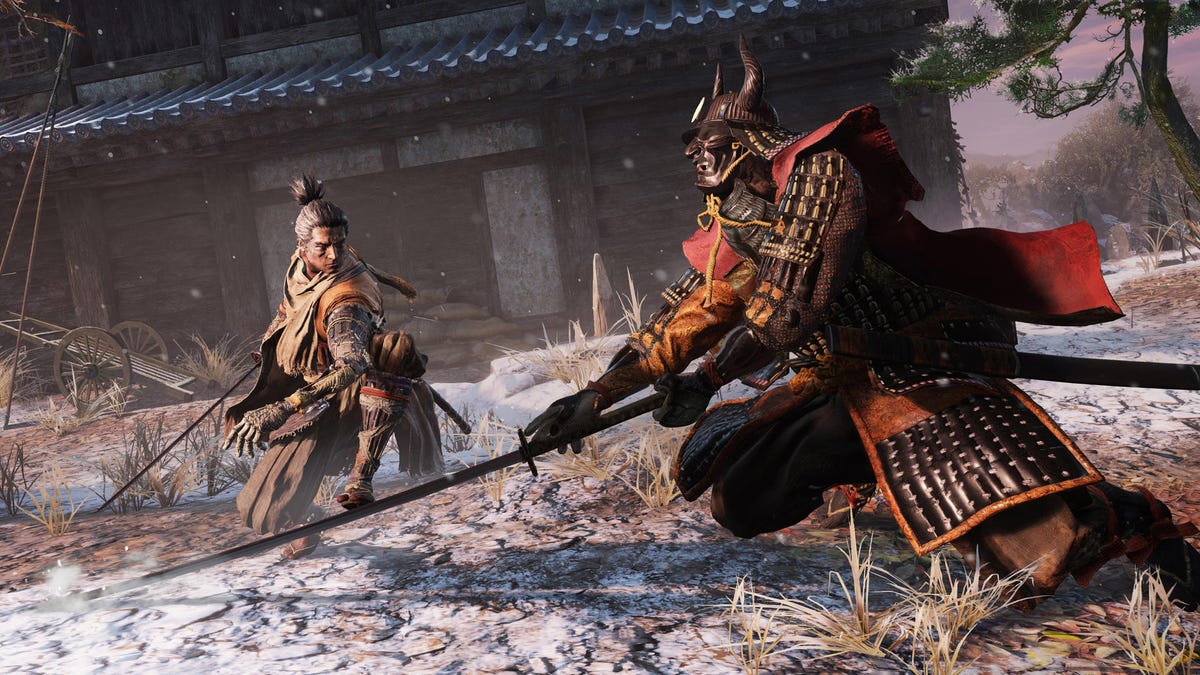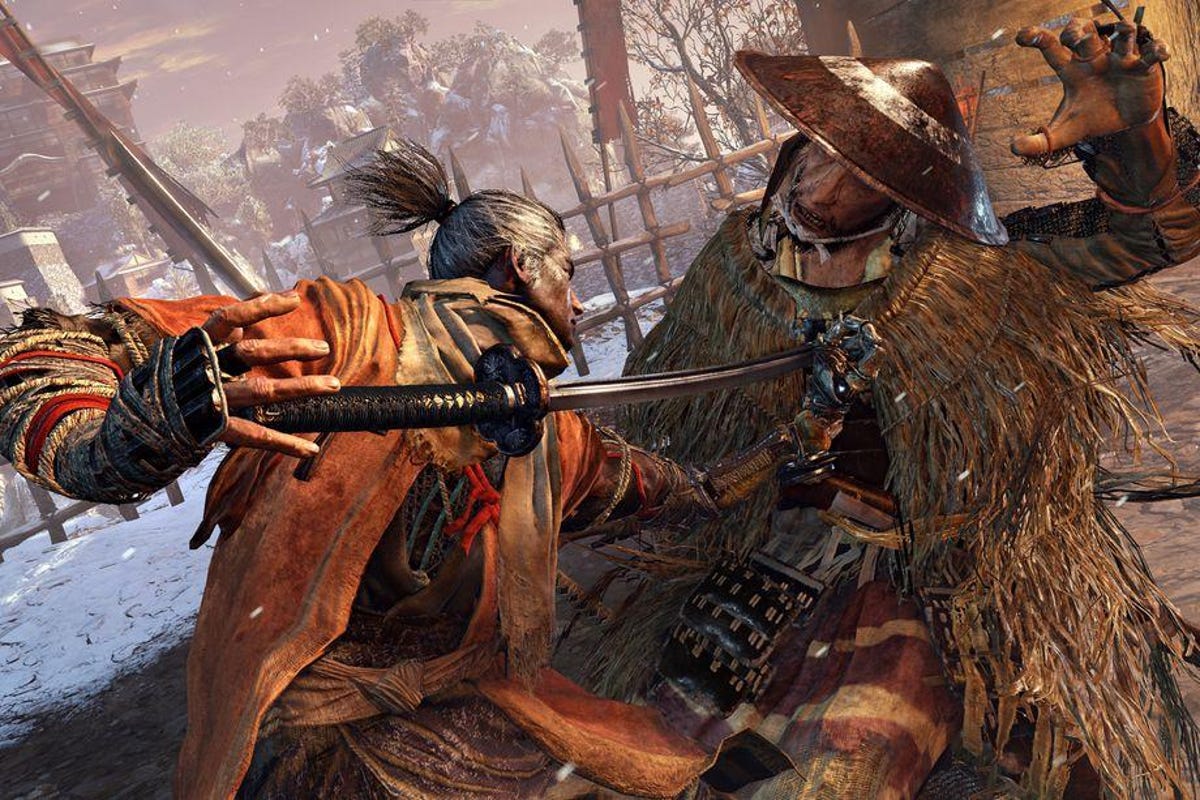Sekiro Shadows Die Twice Difficulty Setting Easy
I'm currently playing a video game called Sekiro: Shadows Die Twice. It's an action game in which you're a shinobi trying to rescue your young kidnapped lord from formidable foes. You may have heard that it's a hard game. I'm probably less than a quarter of the way through, but I've already lost track of how many times I've died -- without exaggeration, the number is probably in the 40 to 50 range.
Both in spite of and because of that difficulty, I'm having a great time. It's an awesome game. Admittedly, I'm a fan of developer From Software. I've written in the past about the positive impact that Dark Souls, one of its previous games, had on my life. Overcoming the challenges of that game led me to some important life lessons.
Sekiro might be the most difficult game this company has made and it has a reputation for making hard games. This has led to an intense online debate about whether or not Sekiro should have an "easy mode." In a lot of video games, you can choose if you want to play on easy, medium or hard. Sekiro doesn't offer that choice.
One compelling article on Kotaku argued for the need for accessibility options in Sekiro so gamers with disabilities can play too. I firmly believe Sekiro is a better game without an easy mode, and I don't say that because I want to belong to an exclusive club of people who can play it.
To me, the ideas of difficulty and accessibility should not be conflated. While some gamers with disabilities have already come forth in defense of the game, Sekiro and all video games should have readily available accessibility options so that anyone who wants to can play them.
Having accessibility options -- perhaps similar to those outlined on Twitter by the creator of Celeste, another difficult game -- is not the same as offering an easy mode. Accessibility options should include specific tweaks to gameplay in a specialized menu you can access if you need them -- such as tweaking the game's speed -- but should stay out of sight if you don't need them. An easy mode typically means a choice presented to all players right at the start of the experience that changes many aspects of the balance of the game.
A lot of the value of the experience of Sekiro comes from overcoming the challenges and improving at the game. Playing Sekiro can be an incredible experience for anyone with the patience and perseverance to see it through, and in a lot of ways, Sekiro is a better game for gamers that kinda suck.
Opening the gates
A big misconception about Sekiro and Dark Souls is they are only for "elite" gamers. That's not the case at all, and those who argue against an easy mode because they want to use these titles for a kind of artificial gatekeeping, that keeps gaming exclusively for "real gamers," are missing the whole point.
They're meant to be teaching exercises. They're meant to provide a feeling of hard-won accomplishment not found in other games. Sekiro is designed for those willing to put in the effort. Period. That's what makes it beautiful.
The difficulty in Sekiro makes you pay attention and take in every detail of the environment. The difficulty is what makes the back-and-forth samurai swordplay so enthralling. You have to know when to attack and when to defend and each decision you make in each split second could lead to victory or defeat.
All games should be playable by all gamers, but Sekiro is not walled off for only the elite. It takes humility. You will certainly die, and if you get mad at the game and stop, you won't get better. If you let your deaths teach you how to improve, you'll eventually be able to conquer everything the game throws at you. It's a cool feeling when that happens, and a unique one in gaming, and there should be room in the gaming world for all manner of unique experiences.

Combat in Sekiro is demanding and awesome.
ActivisionStumbling to victory
As painful as it is for me to admit this, I'm not a particularly skilled gamer. I enjoy video games, but I tend to struggle my way through them, especially ones that are supposed to be hard.
Another recent action game called God of War offers four different difficulty modes. In order from easiest to hardest, they were called "give me a story," "give me a balanced experience," "give me a challenge" and "give me God of War." The game was lauded for letting people choose their own experience without being made to feel guilty if they wanted something easier.
That was part of the artistic vision of the designers and there's nothing wrong with that.God of War is an awesome game. I ended up playing the balanced experience option after trying and failing at the next level up. Even the normal difficulty proved challenging enough to kill me several times, but I never felt stuck. That wasn't the point of God of War. That difficulty was perfect for me and perfectly described.
Sekiro doesn't have that. It has a narrower focus. God of War is about many things. At the forefront is a story about a father trying to reconnect with his son over the course of a harrowing journey. Sekiro has a story too, but it's primarily about overcoming the steep challenges presented through patience and perseverance.
In a lot of games, you make your character more powerful as you play. You do that in Sekiro too, but you also get significantly better at the game and as a gamer. The game teaches you how to win as long as you're willing to learn. You're naturally going to improve at almost any game as you play it, but I've never experienced anything similar to the curve of a From Software game.
After beating Dark Souls for the first time, I started a new game with a fresh character to try my hand at some of the early bosses again. These bosses had all killed me numerous times on my first playthrough -- approaching 10 to 20 times each. On that second playthrough, I killed the first three bosses without getting hit. Again, I'd started fresh, so it wasn't my character that was more powerful. It was me -- I was much more powerful. That's an amazing feeling.
Like Dark Souls before it, Sekiro is incredible in that regard. It's collaborative art at its most interactive, because it requires your dedication to see it through to the end. Your journey mirrors the protagonist's more than in any other game I've played. As your character faces tough challenges and grows and learns, so do you.
Compromising on that vision with an easy mode would lessen that quality. It would take away from its singular artistic focus.
Why do we fall?

Defeating your enemies in Sekiro after a hard-fought battle feels amazing.
ActivisionI'm still early in Sekiro. Just last night, a midlevel boss killed me five times, but I eventually beat him. Most enemies in the game are stronger than your character, but that's OK, because every time you get knocked down, you can get back up and try again. To beat him, I couldn't worry about the fact that I'm inevitably going to face much more challenging bosses. My job at that moment was to overcome that one task, and trust that this challenge would teach me to face the next one.
Like the other From Software games I've played, Sekiro teaches a few life lessons about learning through failure and facing the task in front of you. Working through it is a remarkable experience that any gamer with patience and a willingness to learn can have. An easy mode would take away some of the qualities that make this game so wonderful.
Not wanting to be frustrated with a video game is understandable, but not every video game needs to appeal to every taste. I sometimes like playing video games to relax as well. That's not Sekiro, and it's better for it. It's unique and demanding and it's meant for everyone who can appreciate those qualities in a game.
Originally published on April 14.
Source: https://www.cnet.com/tech/gaming/sekiro-and-difficulty-ignore-the-gatekeeping-anyone-can-play-this-gem/
0 Response to "Sekiro Shadows Die Twice Difficulty Setting Easy"
Post a Comment